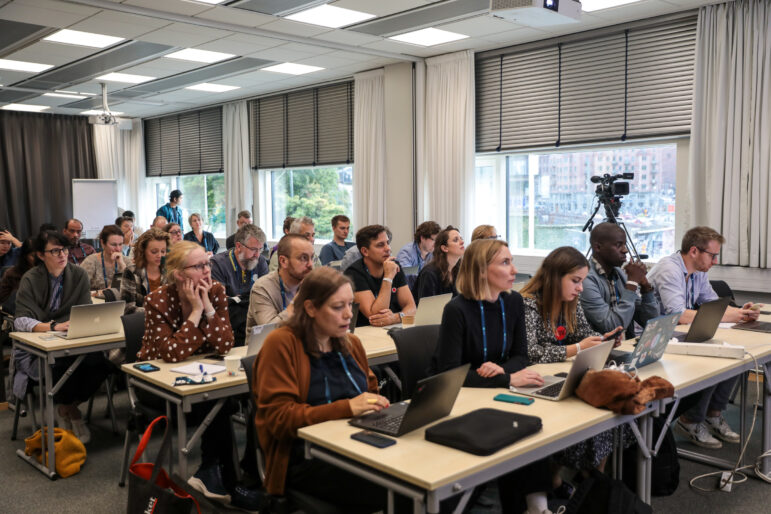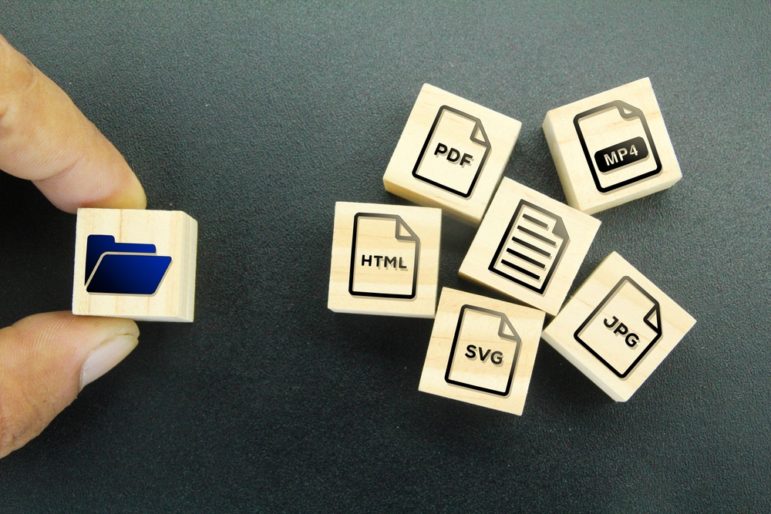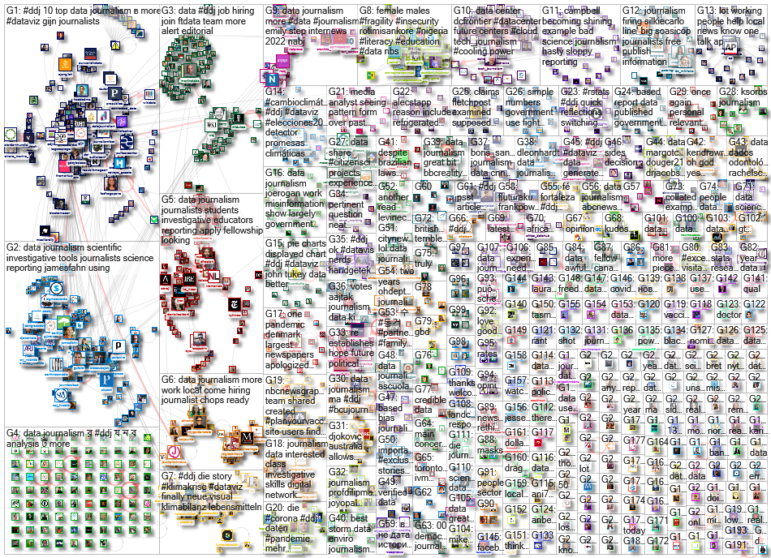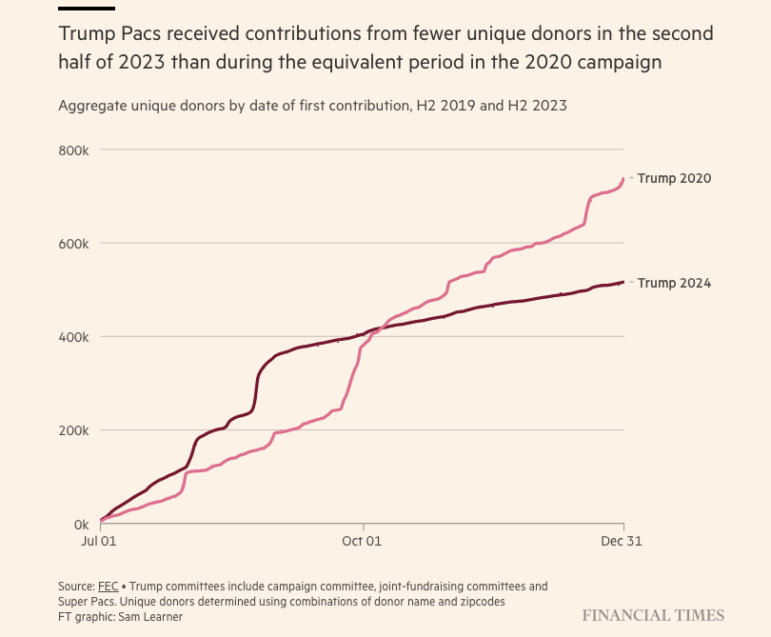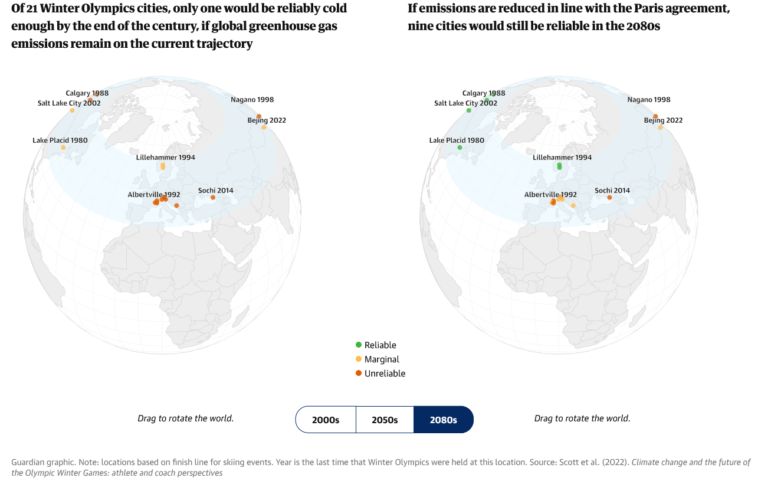

Data Journalism Top 10: Snowless Winter Olympics, Food’s Carbon Footprint, Illegal Mining
Read this article in

Projection of cities that can reliably host the Games in the future if global greenhouse gas emissions remain on their current trajectory. Graphic: Guardian. Screenshot.
Imagine a country organizing a Winter Olympics without snow. It is already happening this year in host city Beijing, and will be the reality for most countries 60 years from now, according to The Guardian. Our weekly NodeXL curation of the most popular data journalism stories on Twitter also features several other climate change-related stories: a look at the carbon footprint of popular food, how the world’s largest beef producer is fueling deforestation in the Amazon, and a Climate Promise Detector on the stance of presidential candidates in Costa Rica.
Fake Snow at Winter Olympics
Due to climate change, the practice of using human-made snow for the Winter Olympics has been increasingly necessary. This month, host city Beijing will rely almost entirely on artificial snow. A study by the University of Waterloo found that only one of 21 former host cities would be viable to host the Games by the end of this century if there is no significant reduction in global greenhouse gas emissions. The Guardian visualized the findings from the study, showing the projection of potential host nations in the 2050s and 2080s for a couple of scenarios: the current trend of rising emissions, and a lower growth in emissions that meet the Paris Agreement guidelines.
Food’s Carbon Footprint
Inspired by the All You Can Eat for Climate project, German daily Der Tagesspiegel takes a look at the carbon footprint of popular food, including meat, fish, dairy, nuts, legumes, grains, fruit, and vegetables. Its series of charts reveal which type of food is particularly damaging for the climate. As expected, beef has one of the biggest impacts, as cows produce methane during digestion — an even more potent greenhouse gas than carbon dioxide. However, there are also some surprising finds, such as that avocados are not as detrimental to the environment as widely claimed. Want to know how climate-friendly your recipes are? The team created a climate calculator for your kitchen.
Gerrymander Your Party to Power
Gerrymandering — the manipulation of electoral boundaries to give a political party an unfair advantage — is a common tactic deployed by politicians worldwide. Will you be as adept as shady political leaders in gerrymandering your party to power? Try your hand at The New York Times’ draw-it-yourself game, where the objective is to draw district lines in an imaginary ‘Hexapolis’ state to ensure your party’s triumph. In case you missed it, we also recently highlighted The Washington Post’s interactive mini-golf game on gerrymandering.
https://twitter.com/DeniseDSLu/status/1488192793017262084
Beef Fuels Amazon Deforestation
The world’s biggest beef producer markets itself as a friend of the environment, and has made ambitious green commitments to rid its supply chain of animals born or raised on deforested land. But a Bloomberg analysis of about one million delivery logs that the Brazilian meatpacking giant accidentally posted online suggests that these promises are really a farce. Journalists checked the data against more than 50,000 land registries and about 520,000 deforestation alerts, and discovered that the company’s practices are, in fact, fueling deforestation in the Amazon rainforest. Visual journalist Mira Rojanasakul explains their findings in this tweet thread.
Venezuela’s Illegal Gold Mining
Using satellite images and artificial intelligence, Armando.info and El País were able to identify 3,718 mining locations, most of them illegal, in the Venezuelan states of Bolivar and Amazonas. These sites have a combined area of 40,000 soccer fields. The reporting team showed for the first time, from a bird’s-eye view, the locations of 42 clandestine landing strips that are adjacent to these deforested areas, from which planes loaded with illicit gold secretly take off. This ongoing investigation was done with the support of the Pulitzer Center’s Tropical Forest Research Network and the Norway’s Earthrise Media.
Hungary’s Sexist Street Names
The visual and data journalism team at Hungarian investigative center Atlatszo examined more than 2,000 names of streets and squares in Budapest, and created an interactive tool that categorizes these streets by gender, real or fictional characters, Hungarians or foreigners, occupation, and era. Its analysis found a stark gender imbalance, with a whopping 90 per cent of streets named after men.
Fake Vaccine Certificates in Russia
When Russia first introduced restrictions to entry into cafés and restaurants due to the pandemic, sites offering fake vaccination documents started popping up online. Russian investigative outlets IStories and Novaya Gazeta sought to determine the number of the fake certificates purchased in the country. They also examined how widespread the problem was by requesting information from 85 regional health departments under the Russian health ministry. Their conclusion: “more fakes than half a million, and less than 10 million.”
Climate Promise Detector
How much does climate change matter to the 25 presidential candidates running in Costa Rica’s election this Sunday? La Data Cuenta, a data analysis, visualization, and storytelling site, reviewed the plans from each candidate to mitigate the effects of climate change. This project, labelled “The Climate Promise Detector,” focused on finding specific initiatives in transport, carbon neutrality, climate adaptation, electricity, and waste management. Read the methodology here.
Mapping the Ukraine-Russia Crisis
With up to 100,000 Russian troops massed outside the Ukrainian border, concerns are high that Moscow is planning an invasion. Reuters illustrates how the Russian military built up bases by showing the contrast between satellite images taken two years ago and now. The team also mapped several scenarios and routes the Russians could take to invade Ukraine, according to analysis provided by US think tank Center for Strategic and International Studies. Also worth a look: Al Jazeera Lab’s explainer of the Ukraine-Russia crisis in eight graphics.
Philip Meyer Awards
Our friends at Investigative Reporters and Editors (IRE) recently announced the winners of its 2021 Philip Meyer Journalism Award, which recognizes the best work using techniques that are part of precision journalism, computer-assisted reporting, and social science research. The winning entries applied sophisticated methods, such as creating automated accounts to figure out TikTok’s algorithm, using sensors to track air pollution, and using machine learning to analyze thousands of police contracts. The winners: “How Tik Tok Figures You Out,” by The Wall Street Journal; “Black Snow: Big Sugar’s Burning Problem,” by The Palm Beach Post and ProPublica; and “Gilded Badges: How New Jersey Cops Profit From Police Unions and Avoid Accountability,” by Asbury Park Press and ProPublica.
Thanks again to Marc Smith and Harald Meier of Connected Action for gathering the links and graphing them. The Top Ten #ddj list is curated weekly.
 Eunice Au is GIJN’s program manager. Previously, she was a Malaysia correspondent for Singapore’s The Straits Times, and a journalist at the New Straits Times. She has also written for The Sun, Malaysian Today, and Madam Chair.
Eunice Au is GIJN’s program manager. Previously, she was a Malaysia correspondent for Singapore’s The Straits Times, and a journalist at the New Straits Times. She has also written for The Sun, Malaysian Today, and Madam Chair.


